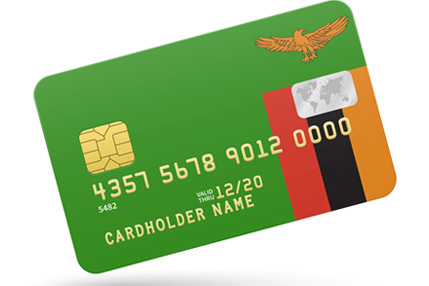 The World Bank estimates that there are 375 million adults in developing countries that are currently excluded from financial services. A major reason for this is the lack of a secure verifiable identity—something that is vital for establishing a foundation for financial identity and inclusion. With a smart e-ID in place, governments and financial service providers will be able to use this platform to simplify their “Know-Your-Customer” requirements and conduct due diligence on their prospective customers. e-IDs have already proved to be successful in promoting financial inclusion all over the world by increasing access to payments, savings, credit and investment products, and therefore bringing more people into the formal financial sector.
The World Bank estimates that there are 375 million adults in developing countries that are currently excluded from financial services. A major reason for this is the lack of a secure verifiable identity—something that is vital for establishing a foundation for financial identity and inclusion. With a smart e-ID in place, governments and financial service providers will be able to use this platform to simplify their “Know-Your-Customer” requirements and conduct due diligence on their prospective customers. e-IDs have already proved to be successful in promoting financial inclusion all over the world by increasing access to payments, savings, credit and investment products, and therefore bringing more people into the formal financial sector.
There are numerous benefits to creating a secure verifiable financial identity for individuals. In our view, the biggest step towards alleviating Africa’s poverty levels will come from providing its citizens with access to formal credit. The ability to uniquely identify and verify customers makes it easier to track their behavior, which lowers their credit risk and encourages increased lending. With access to credit, people will be able to open their own businesses and create wealth. The wealth will allow them to take care of their families and cover education and health costs. It will also help them to deal with the unplanned expenses that would have previously devastated their livelihoods.
 Zedliner Global is focusing on promoting rural development through financial identity. Providing smallholder farmers with access to credit is essential to unlocking long-term, sustainable gains in farmer productivity and incomes. Without financing, smallholder farmers cannot afford the relatively high upfront costs of quality seed and fertilizer, relying instead on poor quality seed and little to no fertilizer. Without access to credit, they may be unable to purchase or rent the tools that would help them increase efficiency and reduce labour costs. Additionally, they may not be able to afford the training services that would help them to improve seed and fertilizer application techniques and general farm management skills. Finally, without access to credit, a farmer might be compelled to sell any crop surplus immediately after harvest, when prices are typically at a seasonal low.
Zedliner Global is focusing on promoting rural development through financial identity. Providing smallholder farmers with access to credit is essential to unlocking long-term, sustainable gains in farmer productivity and incomes. Without financing, smallholder farmers cannot afford the relatively high upfront costs of quality seed and fertilizer, relying instead on poor quality seed and little to no fertilizer. Without access to credit, they may be unable to purchase or rent the tools that would help them increase efficiency and reduce labour costs. Additionally, they may not be able to afford the training services that would help them to improve seed and fertilizer application techniques and general farm management skills. Finally, without access to credit, a farmer might be compelled to sell any crop surplus immediately after harvest, when prices are typically at a seasonal low.
In most developed countries, commercial banking branches are able to provide lending for a variety of personal and business loans. However, in many developing countries, much of the demand for personal and business loans stems from the agriculture sector. Given the nature of agricultural risk to exogenous factors (weather, pests, diseases, and commodity price fluctuations, for example) many banks perceive lending to farmers to be too risky. In sub-Saharan Africa, only 95 of 900 banks recently surveyed provide financing to smallholder farmers.
 As a result, many farmers simply do not borrow, or they resort to informal lending from family, friends, money lenders, or other value chain actors such as input suppliers, buyers, and traders. However, these other sources charge much higher interest rates than commercial lenders—sometimes even 10 times higher—and access is uneven across the population. In fact, it is estimated that 30-60% of the rural population in sub-Saharan Africa has no access to credit at all. It is clear that innovative and creative approaches are needed to successfully provide access to credit for smallholder farmers.
As a result, many farmers simply do not borrow, or they resort to informal lending from family, friends, money lenders, or other value chain actors such as input suppliers, buyers, and traders. However, these other sources charge much higher interest rates than commercial lenders—sometimes even 10 times higher—and access is uneven across the population. In fact, it is estimated that 30-60% of the rural population in sub-Saharan Africa has no access to credit at all. It is clear that innovative and creative approaches are needed to successfully provide access to credit for smallholder farmers.
With a secure, verifiable digital identification rural farmers are able to access formal financial services and institutional credit. This empowers them by giving them a path to economic stability and prosperity. The vast amount of data generated from transactions in agricultural supply chains will provide the accurate market information that supply chain actors and the public sector demand. This data can be used to inform production and marketing decisions, prove a farmer’s track record to allow them to access credit, and strengthen the enabling environment with better informed policies. Physical assets registered on the distributed ledger, such as land titles, can also be used as collateral to access financing.
 Zedliner’s proposals leverage machine learning and artificial intelligence to quantify the credit-worthiness of each farmer in the system. Our algorithm establishes a rating based on the track record of the farmer; this rating will change based on measurable factors against dynamic performance criteria, taking into account such factors as return on investment, efficiency, and quality of yield, rather than being based only on collateral such as land.
Zedliner’s proposals leverage machine learning and artificial intelligence to quantify the credit-worthiness of each farmer in the system. Our algorithm establishes a rating based on the track record of the farmer; this rating will change based on measurable factors against dynamic performance criteria, taking into account such factors as return on investment, efficiency, and quality of yield, rather than being based only on collateral such as land.
The technology also has the ability to trace a product’s provenance, carry detailed attributes for the product in each transaction, and ensure its authenticity. This brings with it vast improvements in traceability, which will have a positive impact on food safety, quality and sustainability. The disintermediation of transactions in agricultural supply chains and the use of smart contracts enable frictionless and real-time payments for agricultural financial services. This can reduce transaction costs and decrease risk for buyers and sellers. It also helps in bypassing complex and paper-heavy settlement processes, resulting in increased cash flow and working capital for farmers and sellers. In simple terms, more efficient supply chains and agricultural financial services lead to greater financial inclusion and stronger business development.
